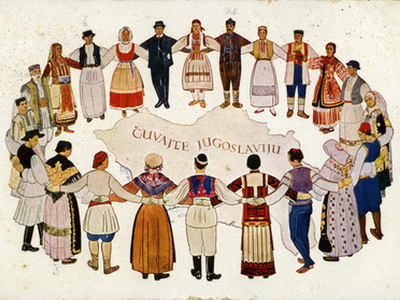Zala Pavšič - Narrating Political Change: Friendship and the Fall of Yugoslavia
This seminar is based on the pressumption that every system in power tries to define what it consideres as a desired form of friendship: in communist Yugoslavia, for example, the policy of brotherhood and unity served as a means of bonding the six republics. Hence, (multi-ethnic) friendship was a frequent topic in literature as well as in movies. One of the tactics employed by the government was also the organization of obligatory military service for generations of men from all over the country. However, with the rise of nationalism and the disintegration of the country, multi-ethnic ties became problematic and, consequently, the examples of friendship discussed above were replaced with narratives of friendships lost. The purpose of this seminar is to present the outcomes of a research which encompassed studying diaries, letter correspondences, autobiographical sources, documentaries and interviews. Its' goal is to show how friendship served as a discourse for adressing state affairs on one hand and as a discourse of resiting nationalism and protesting against war on the other.
